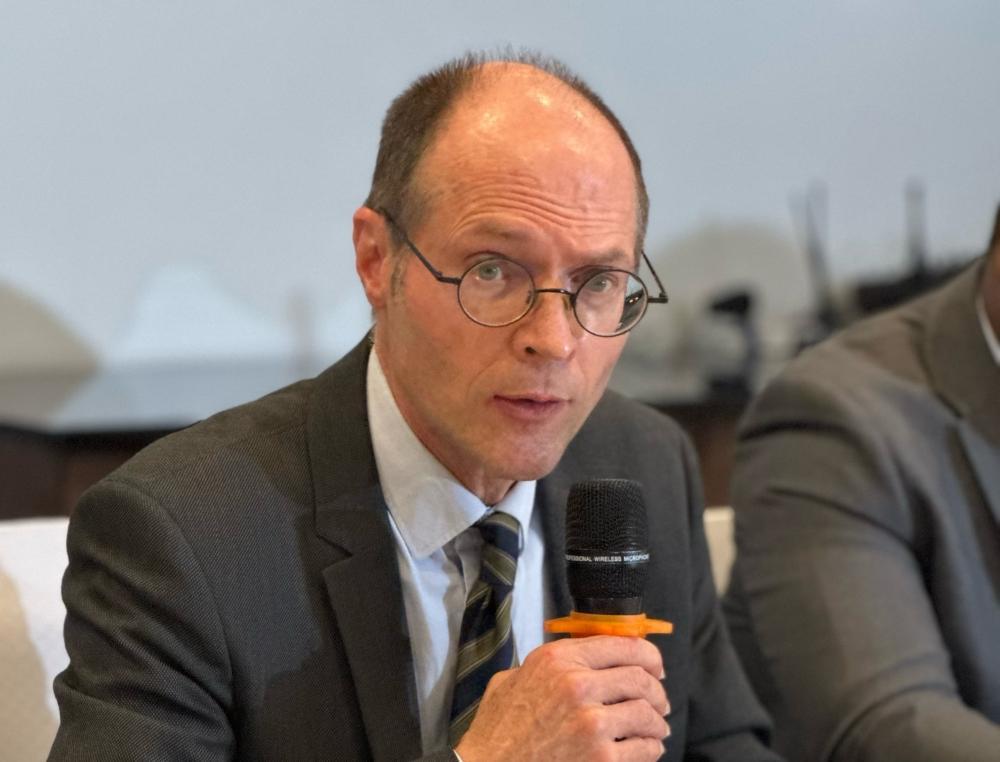Africa-Press – Rwanda. Despite Rwanda’s commendable strides in reducing poverty, more than a quarter of its working citizens remain trapped in poverty due to low wages.
This was one of the concerns raised by Olivier De Schutter, the United Nations Special Rapporteur on Extreme Poverty and Human Rights, during a press briefing on May 30, in Kigali.
Concluding his 12-day fact-finding mission — from May 19 to May 30 — in the country, De Schutter called on the government to urgently establish a statutory minimum wage—a measure he said is critical to protecting workers from “poverty wages” and ensuring that economic growth effectively translates into real improvements in people’s lives.
According to the seventh Integrated Household Living Conditions Survey (EICV 7), published by the National Institute of Statistics of Rwanda (NISR), on April 16, the poverty rate among Rwandans fell by 12.4 percentage points to 27.4 percent from 2017 to 2024. That means Rwanda lifted 1.5 million people out of poverty in the last seven years.
De Schutter said that much as the government targets to create more jobs for its people, especially young adults which is indeed “extremely important because 28 percent of young adults are not in employment, education or training, jobs must be decent in order to protect people from poverty.”
He indicated that there are three challenges including the fact that majority of the jobs, up to 82 per cent, are in informal employment with limited protection as a result.
“And thirdly, even if you have work, or if you have a job, it doesn’t mean you are protected from poverty. More than one in four workers live in poverty. This is the rate of in-work poverty; 25.3 per cent,” he said.
In-work poverty refers to a situation where, despite having a job, employees live in poverty because their income is insufficient to meet basic needs. To address the issue, he said “I strongly recommend that we adopt a minimum wage for this country.”
While the establishment of a minimum wage is actually something the labour code — the 2018 law governing labour in Rwanda — requires, De Schutter said the minister in charge of labour in the country has not taken the initiative of adopting the ordinance or the decree that would protect workers from poverty wages.
“We could have a different minimum wage level for the rural and the urban areas and the [labour] unions have proposed the figures. For the minimum wage to be a living wage, I think it’s really important, otherwise employers will continue to compete on low wages and that is simply not acceptable,” he said.
For De Schutter, maintaining low wages, if it is to achieve competitiveness in labour-intensive sectors, “is a self-defeating strategy” because it will not allow most of the population to benefit from general economic progress.
“I very much believe that setting a minimum wage at the level that corresponds to a living wage, allowing the worker and his or her family to live in adequate conditions, is indeed the next step that the country should take to encourage employers, to encourage businesses, to achieve competitiveness by other means than by paying workers low wages,” he stated.
“And I think that would be a very powerful signal of where the country wishes to go.”
Protection of informal sector workers
Another issue to consider, De Schutter said, is how to ensure formalisation and move beyond the high levels of informality.
“And here, as in other countries, we need a two-track approach. First, we need to protect informal workers from abuse and exploitation by ensuring that labour inspectors monitor the informal sector in particular and by ensuring that informal workers have decent working conditions.
“And secondly, we need, more positively, to provide incentives to formalise,” he advised.
As Rwanda marked Labour Day, it was reported that an agreement was reached between mining companies and the miners’ union to introduce a minimum ‘living’ wage for mine workers.
For More News And Analysis About Rwanda Follow Africa-Press






